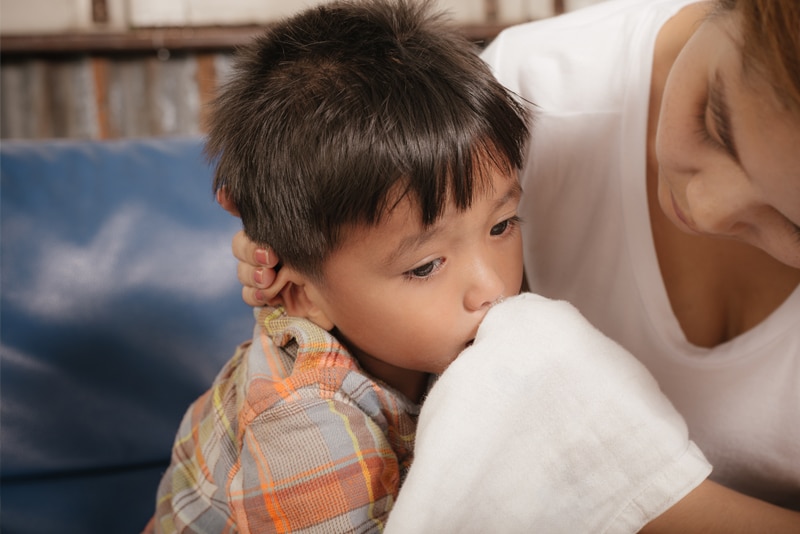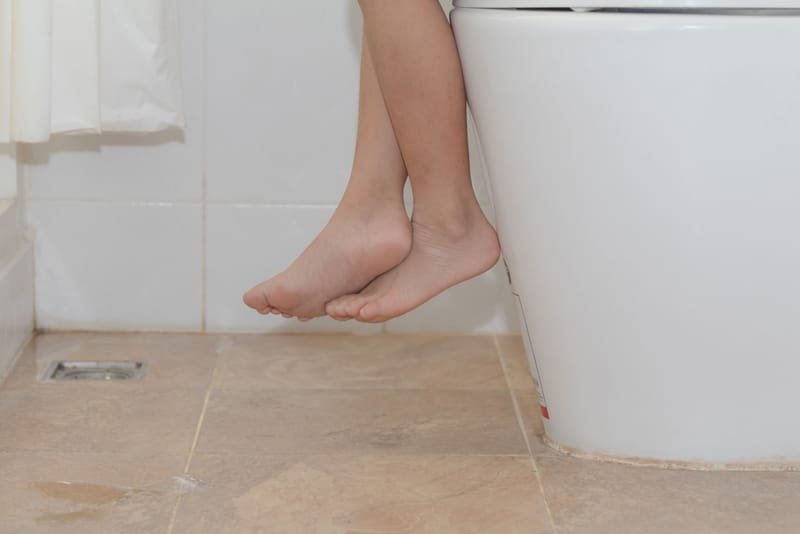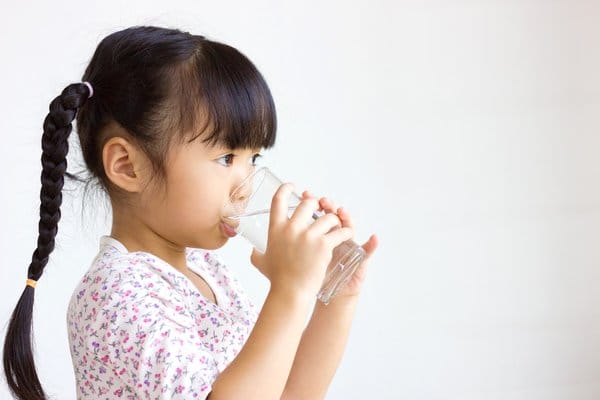Diarrhea and Vomiting in Children
When diarrhea is coupled with vomiting or if the diarrhea is in large amounts or very frequent, the risk of severe dehydration will be higher, and parents should seek medical attention.

What Causes Vomiting in Children?
Vomiting is a very common yet non-specific symptom in children. There can be many causes behind your child’s vomiting episode, and there are many consequences, ranging from common and self-limiting ones, to very serious life-threatening ones.
Vomiting is most commonly caused by a virus infection of the digestive system, also known as viral gastroenteritis, which often results in diarrhoea as well. Less commonly, it can also be due to a bacterial infection of the digestive system (by bacteria such as Salmonella). Depending on your child’s age and symptoms, there are many other possible causes of vomiting, including gastro-oesophageal reflux in infants, acute appendicitis, intestinal obstruction, meningitis/encephalitis (brain infection), brain tumour/bleeding, urinary tract infection, middle ear infection, pneumonia (lung infection), bacteremia (blood infection), toxins/poisoning, diabetic ketoacidosis, acute myocarditis etc.
It is therefore of paramount importance that your child, who is vomiting, gets a proper assessment by his/her doctor to make sure that there are no serious red flag symptoms/signs which may suggest the serious causes.

What Causes Diarrhea in Children?
- Virus: The most common cause of acute diarrhoea in children is acute gastroenteritis, most of the time caused by viruses (e.g. rotavirus, norovirus), especially in children in developed countries like Singapore. The virus is often acquired when it spreads the family or in childcare/schools.
Viral gastroenteritis is usually self-limiting, and the focus is typically on ensuring adequate hydration and taking medications to control the symptoms of diarrhoea and/or vomiting. - Bacteria: Bacterial gastroenteritis (e.g. Salmonella, Campylobacter, Shigella, E coli etc) could be the cause of diarrhea if there is:
- blood/mucus in the stools,
- high fever,
- worsening diarrhoea or
- if there is a significant travel history or contact with another person who had bacterial gastroenteritis.
- Parasites: Diarrhea is rarely caused by parasites, and even if it happens, it usually occurs in developing countries
- Others: Other common causes of diarrhoea include lactose intolerance (which can either be something which the child is born with, or a transient lactose intolerance occurring after a bout of viral gastroenteritis), other food intolerance, toddler’s diarrhoea, post-enteritis syndrome etc.
Less common but serious causes of prolonged diarrhoea should be considered if the diarrhoea is more than 3-4 weeks or if there are red flag signs such as persistent blood/mucus in stools, loss of weight or failure to gain weight, poor appetite/activity, persistent fevers, pallor (to suggest anaemia), significant abdominal pain causing awakening from sleep, oily stools etc. These could be a sign of malabsorption disorders, inflammatory bowel disease, Celiac disease, chronic gut infections, abdominal tumours etc
What to Do if your Child is Having Diarrhea or Vomiting?
- Firstly, bring your child to see the doctor to get a proper diagnosis. Your doctor may administer certain medications in the clinic to stop the vomiting quickly, if the diagnosis is gastroenteritis. More serious causes/diagnoses will be managed accordingly
- When back at home, take the medications prescribed by your doctor for vomiting
- Feeding wise, focus on fluids and not on solid food. Offer your child fluids in small amounts (sips) but frequently (e.g. every 30-60mins). You can try rehydration fluids, barley water, coconut water etc
- Avoid dairy products for one week if your child has been diagnosed with gastroenteritis. You might need to consider changing your child’s milk feeds to non-lactose formula
- If your child wants solid food, please only give soft and light food, such as porridge and soups
- Avoid fruits, vegetables and fruit juices in the meantime

When to Consult a Paediatrician?
- Lethargy
- Very dry mouth and lips
- No tears on crying
- Sunken eyes
- Poor skin turgor
- Poor skin colour
- Cool clammy hands/feet
- Reduced urine output
- Unable to tolerate any oral fluids

- Severe abdominal pain, especially if it is in the right lower abdomen
- Severe vomiting, not resolving
- Recurrent yellowish/greenish vomit
- Abdominal distension, inability to pass motion/gas
- Drowsiness, irritability, difficult to wake up
- Neck stiffness, headache worse with lights
- Severe headache, especially in the early morning, on lying down/sneezing/exertion
- Early morning projectile vomiting
- History/signs of head injury
- Breathing difficulties
- Poor colour or pallor
- High fever which is not resolving
- Abnormal heart rate or blood pressure
If this happens when your child is travelling with you overseas, see a doctor as soon as you can when you’re there, and consider following up with your paediatrician when you return to Singapore. Parents should also remember to enforce mealtime hygiene to prevent diarrhea, especially when travelling, for example:
- Wash hands often
- Wash fruits and vegetables before eating
- Refrigerate meals as soon as possible
- Keep pet feeding areas separate from family eating areas

